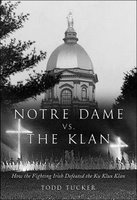Unfortunately, many find it necessary to refer to themselves as "four point Calvinists." For them the point with which they are uncomfortable is the third point, namely Limited Atonement. They find it hard to fathom that Christ did not die with the intention of saving every human being. They find it difficult to swallow that the death of Christ was designed to save only the elect of humanity and not the entirety of humanity. Ironically, the vocal discomfort of the "four pointers" often leads to an apologetic, even reluctant understanding of the doctrine of Limited Atonement among those who would otherwise hold to the truth of all five points (see Wayne Grudem, Systematic Theology). Nevertheless, the third point in TULIP is a most biblically verifiable doctrine, and even a most comforting and assuring point. When properly understood, the atonement of Christ on behalf of the elect is a doctrine that offers us the sweetness of an assured justification like no other. It assures us that the Father and the Son are indeed one in purpose, on the same eternal page. It assures us that our destiny of eternal communion with the Father and the Son is not based on our ability to please the Father, but on Christ willingness to satisfy the demands of justice on our behalf.
This morning Spurgeon reminds us of just how beautiful and comforting the doctrine of a definite atonement can be. He rightly says, "...no soul for whom Jesus died as a substitute can be cast into hell.":
"Just, and the justifier of him which believeth."—Romans 3:26.
BEING justified by faith, we have peace with God. Conscience accuses no longer. Judgment now decides for the sinner instead of against him. Memory looks back upon past sins, with deep sorrow for the sin, but yet with no dread of any penalty to come; for Christ has paid the debt of His people to the last jot and tittle, and received the divine receipt; and unless God can be so unjust as to demand double payment for one debt, no soul for whom Jesus died as a substitute can ever be cast into hell. It seems to be one of the very principles of our enlightened nature to believe that God is just; we feel that it must be so, and this gives us our terror at first; but is it not marvellous that this very same belief that God is just, becomes afterwards the pillar of our confidence and peace! If God be just, I, a sinner, alone and without a substitute, must be punished; but Jesus stands in my stead and is punished for me; and now, if God be just, I, a sinner, standing in Christ, can never be punished. God must change His nature before one soul, for whom Jesus was a substitute, can ever by any possibility suffer the lash of the law. Therefore, Jesus having taken the place of the believer—having rendered a full equivalent to divine wrath for all that His people ought to have suffered as the result of sin, the believer can shout with glorious triumph, "Who shall lay anything to the charge of God's elect?" Not God, for He hath justified; not Christ, for He hath died, "yea rather hath risen again." My hope lives not because I am not a sinner, but because I am a sinner for whom Christ died; my trust is not that I am holy, but that being unholy, He is my righteousness. My faith rests not upon what I am, or shall be, or feel, or know, but in what Christ is, in what He has done, and in what He is now doing for me. On the lion of justice the fair maid of hope rides like a queen.
Steve Lawson, pastor of Christ Fellowship Baptist Church and author of Foundations of Grace, has a series of messages entitled Ten Reasons Why the Bible Teaches Definite Atonement. You might find these quite helpful, encouraging, and if need be, convincing. The doctrine of a Definite Atonement is all over the Bible. I, for one, thank God it is.






